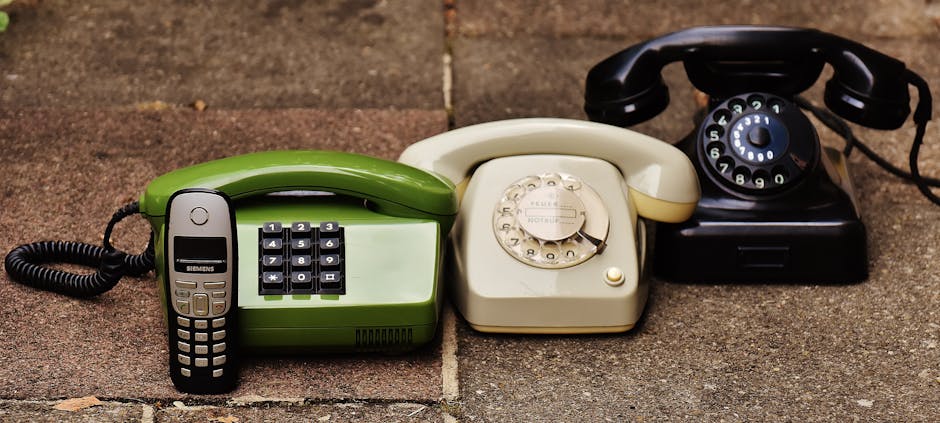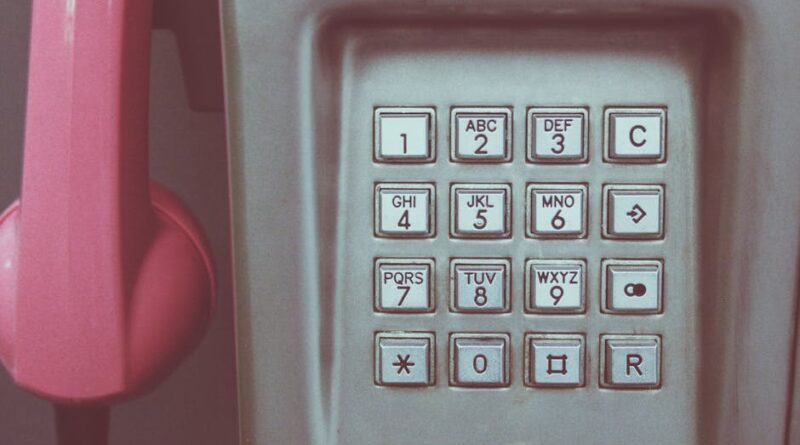VoIP Dialer Setup: FAQs Answered
Have you ever wondered how to set up a VoIP dialer? You’re not alone! Many people are curious about Voice over Internet Protocol (VoIP) technology and how it can improve their calling experience. In this article, well answer your most pressing questions about VoIP dialer setup.
VoIP systems are becoming more popular every day. In fact, a recent study found that over 50% of businesses now use VoIP for their phone services. With that in mind, let’s dive into the FAQs about VoIP dialers and get you started!
What is VoIP and Why Use It?

VoIP stands for Voice over Internet Protocol. It allows you to make calls using the internet instead of traditional phone lines. Think of it like sending an email instead of a letter. It’s faster, cheaper, and often more convenient.
Here are some reasons to consider using VoIP:
- Cost savings: VoIP calls are usually cheaper than traditional calls, especially for long distances.
- Flexibility: You can make calls from anywhere with an internet connection.
- Advanced features: VoIP systems often include features like voicemail-to-email and call forwarding.
How Do I Set Up a VoIP Dialer?

Setting up a VoIP dialer might sound intimidating, but it’s quite simple! Follow these steps:
- Choose a VoIP provider: Research and select a provider that suits your needs. Look for features, pricing, and customer support.
- Get the right equipment: You may need a VoIP phone or a softphone app on your computer or smartphone.
- Connect to the internet: Ensure you have a stable and fast internet connection. This is crucial for good call quality.
- Install software: If using a softphone, download the app and follow the installation instructions.
- Configure settings: Enter your account details and adjust settings as needed. This might include setting up your voicemail.
And voil! you’re ready to make calls.
What Equipment Do I Need for VoIP?

Your equipment choices depend on how you plan to use your VoIP service. Here are the most common setups:
- VoIP Phone: These are specially designed phones that connect directly to your internet. They look like traditional phones but have built-in VoIP capabilities.
- Softphone: This software allows you to make calls using your computer or smartphone. it’s a great option if you prefer not to buy extra hardware.
- Headset: For better audio quality, consider using a headset with a microphone, especially if you plan to make lots of calls.
Can I Keep My Current Phone Number?

Yes, in most cases, you can keep your current phone number when switching to VoIP. This process is known as number porting.
To port your number, follow these steps:
- Contact your VoIP provider and request to port your number.
- Provide any required information, such as your current provider and account details.
- Wait for the porting process to complete, which may take a few days.
It’s that simple! Just be sure not to cancel your old service until the porting is complete.
What Internet Speed Do I Need for VoIP Calls?
Your internet speed plays a crucial role in the quality of your VoIP calls. A good rule of thumb is:
- For one call, you’ll need at least 100 kbps (kilobits per second) download and upload speed.
- For multiple simultaneous calls, add 100 kbps for each call.
For example, if you want to make three calls at once, aim for a minimum of 300 kbps. However, having a faster connection will improve call quality and reduce lag!
What Are the Common Issues with VoIP Calls?
While VoIP is generally reliable, you might run into some issues. Here are a few common problems and how to fix them:
- Poor Call Quality: This often stems from a slow internet connection. Check your speed and close any bandwidth-heavy applications.
- Echo: If you hear an echo of your voice, it could be due to a faulty headset or a poor internet connection. Try adjusting your setup.
- Dropped Calls: Dropped calls can be frustrating. Ensure your internet is stable and consider using a wired connection instead of Wi-Fi.
Most issues can be resolved with a little troubleshooting!
Are VoIP Calls Secure?
Security is a common concern with any online service, including VoIP. While VoIP calls are generally secure, it’s important to take precautions.
Here are some tips to enhance your VoIP security:
- Use strong passwords: Protect your VoIP accounts with complex, unique passwords.
- Enable encryption: Many VoIP providers offer encryption options to protect your calls.
- Keep software updated: Regularly update your devices and software to patch vulnerabilities.
By following these steps, you can keep your conversations private!
What Are the Costs Involved in Using VoIP?
The costs of VoIP services can vary widely depending on the provider and features. Heres what you might expect:
- Monthly fees: Most providers charge a monthly fee, which can range from $10 to $50 per line.
- Setup fees: Some companies may charge a one-time setup fee. Be sure to check before signing up.
- Additional fees: Look out for costs for extra features like call recording or additional phone lines.
Always compare plans to find the best deal for your needs. Don’t forget to check for promotional offers!
How Do I Troubleshoot VoIP Issues?
Sometimes, things might not work as planned. Here are some quick troubleshooting tips:
- Restart your router: This can solve many connectivity issues.
- Check your internet speed: Use a speed test tool to ensure your connection is adequate.
- Contact support: If all else fails, reach out to your VoIP provider for assistance. They can often resolve issues quickly.
Don’t let technical problems discourage you. Most can be fixed with a little patience!
Conclusion: Your VoIP Journey Begins
Setting up a VoIP dialer doesnt have to be overwhelming. With the right information, you can enjoy all the benefits of VoIP technology. Remember to choose a good provider, invest in the right equipment, and keep your internet connection stable.
As you embark on your VoIP journey, refer back to this guide whenever you have questions. And don’t hesitate to explore other resources. For a deeper dive into VoIP technology, check out this article from TechRadar.
Now, get ready to make those calls! With VoIP, the world is just a dial away.



